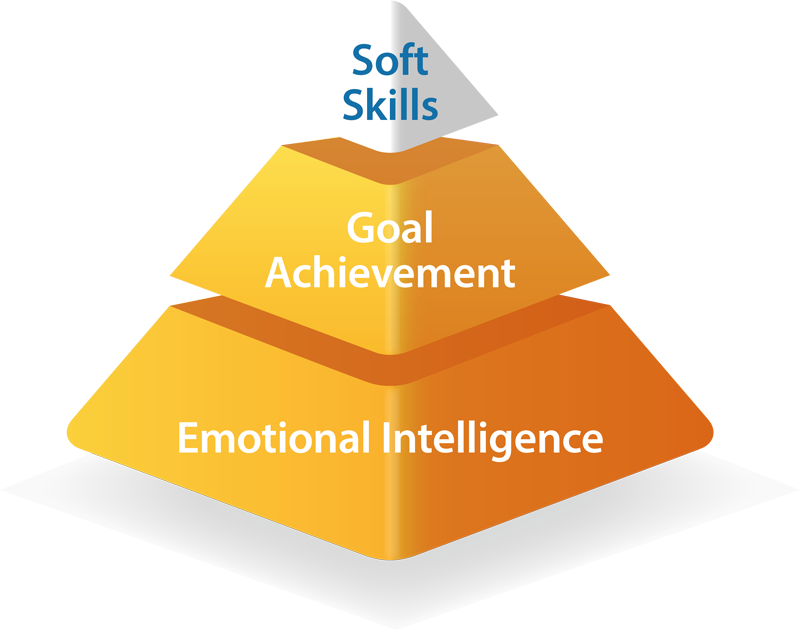
There has been much attention placed on social emotional learning (SEL) in the last few years. SEL is critical to the success of every person in our society. No doubt about it, improving SEL skills will result in more emotionally connected youth and adults. But is that enough to instill the habits of personal success?
Maybe Not
Our forty years of experience in helping youth and adults achieve personal success has led us to develop a three-pronged approach to personal success development. The first level is emotional intelligence, the second is goal setting and achievement and the third is soft skills.

Emotional Intelligence
SEL, or what we prefer to call emotional intelligence or EQ, is a learned ability to identify, explain, understand and express human emotions in healthy and productive ways. All theories of emotional intelligence consider empathy to be the most basic building block to understanding other peoples’ thoughts, feelings and emotions and is the cornerstone of social skills. In order to develop empathy one must first develop a sense of oneself or intrapersonal awareness. Once intrapersonal awareness exists, then interpersonal awareness or awareness of others can be developed. This then leads to empathy, which is a byproduct of these two key skills.

Other key emotional intelligence skills related to personal success are drive strength/motivation, commitment and time management. These core SEL skills are usually lacking when individuals have no stated goals. This is because, without the presence of a goal, there is no commitment, no time management and no motivation to achieve.
Goal Setting and Achievement
The storehouse of all feelings and emotions is the brain. Recent developments in brain research at Harvard University and other major research centers shows that the ages of 10 – 24 are critical years for the development of key life skills in goal setting and achievement.
The past thirty years of brain research show:
- Core development issues of the brain center around the development of the frontal lobe during those critical years.
- The frontal lobe is where the executive functions are located.
- Key executive functions that need to be developed between these ages are planning, organizing and prioritizing skills.

Planning, organizing and prioritizing skills are all related to goal setting and goal achievement. Other critical goal setting and achievement skills are self-control, self-management, problem solving and resiliency.
Soft Skills
Soft skills refers to a group of personal qualities that enable someone to interact effectively and harmoniously with other people. This includes personal qualities such as a positive attitude, the ability to communicate, to think critically, to organize and plan, to work with a team, and more. Soft skills are very similar to social skills in that they assist in the development of positive interpersonal relationships. This is the hallmark of success for any organization.
It is important to realize that soft skills have been studied for a long time. Research conducted by Harvard University, the Carnegie Foundation and Stanford Research Center has all concluded that 85% of job success comes from having well-developed soft and social or people skills, and only 15% of job success comes from technical skills and knowledge (hard skills). These statistics were extrapolated from A Study of Engineering Education, authored by Charles Riborg Mann and published in 1918 by the Carnegie Foundation. The cited figures come from the data on pages 106‐107. (The report is out of print, but can be found online at https://www.nationalsoftskills.org/where-did-this-come-from/)

Our programs are designed to help you help others to build these essential skills and become successful in school, work and community. Why not take a closer look?
Sign up to talk to one of our SEL experts: https://www.conovercompany.com/webinars/
